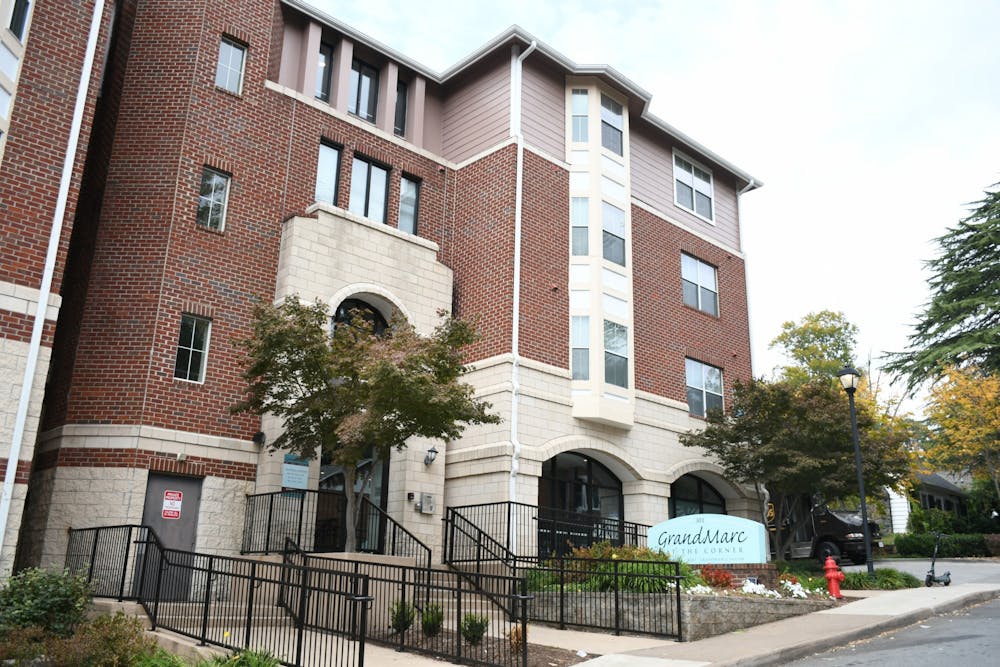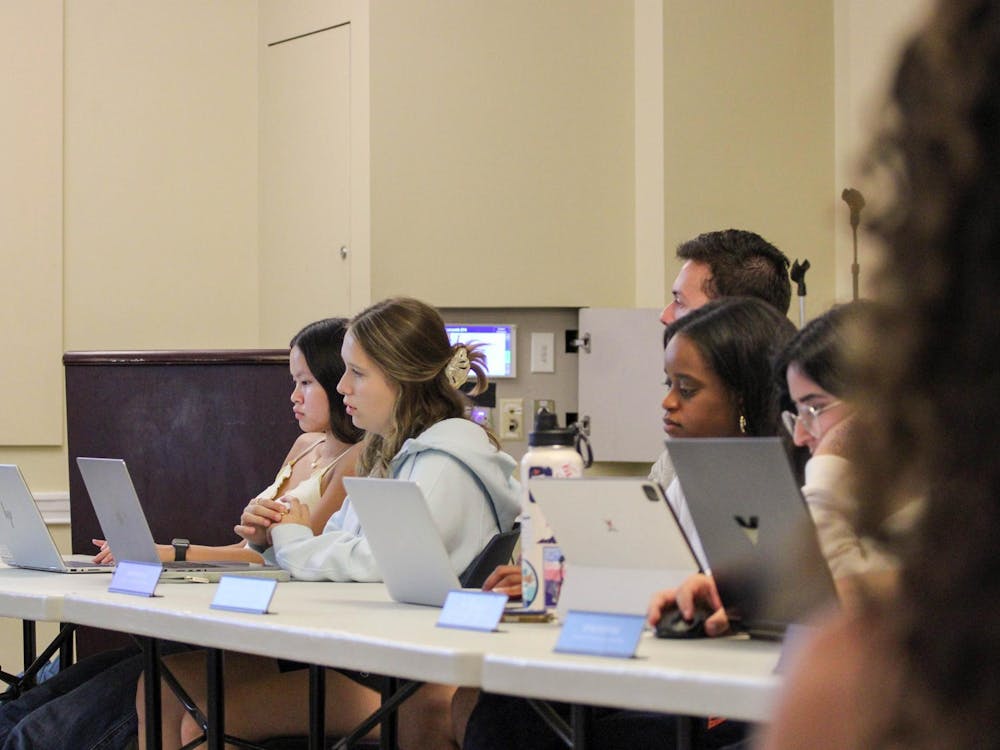As students at the University make their plans for housing for the 2023-24 school year, many are frustrated with the process of securing off-Grounds housing.
Only first-year students are required to live on Grounds. Those who choose to live on Grounds for their second year may stay on Grounds for the remainder of their time at the University, and upperclassmen students have first priority when reapplying for the same area where they currently live. For those who wish to change their housing area, however, preferred locations are not guaranteed to be available.
Many students in their second, third or fourth year elect to live off-Grounds in local apartment complexes or houses. Second-year College student Peyton Russell said that she struggled with finding off-Grounds housing after deciding not to continue living in University housing. She found difficulty with how early in the school year students are expected to sign leases, noting that by late October, many of her friends had already secured housing, while she had not.
“I spent a month looking at apartments and trying to find stuff and trying to make it all work and I really felt kind of like I was not gonna be able to make it work and I was really stressed,” Russell said.
Students begin searching for housing early in the school year, usually immediately after summer break and through October. During the first few months of the school year, many students utilize platforms like Facebook to seek out available apartments and roommate groups looking for an extra roommate.
Though the process was very stressful, Russell said she is happy with the apartment she ended up in this year.
“I am happy with what it ended up with — I feel like it was kind of luck of the draw, considering the situation I was in when I accepted,” Russell said.
Despite knowing more students and having a better feel for the housing landscape after her first year, second-year College student Leslie Kim said this year’s search has proved equally frustrating.
“I honestly feel like I'm more stressed now,” Kim said. “Last year, I made housing plans with other girls from my dorm, but many of them plan to live in sorority houses for third year, so it’s been a bit of a scramble.”
Some upperclassmen choose Greek housing for the relatively cheaper prices and the flexibility to only lease for a semester, as many students elect to travel abroad in their third year. Most local apartment complexes rent out for the full year, meaning that students who wish to return home over summer and winter breaks must still pay rent for those months. Some students choose to seek a subletter, who will live in the apartment and pay a portion of the rent over the months the resident is not in residence.
“I’m planning to study abroad in South Korea for the spring semester of next year, so that’s definitely a factor in my decision, since I’ve heard it’s difficult to find a subletter for fall semester in an apartment,” Kim said.
Finding housing for alternative time periods also proves a challenge for visiting researchers. Visiting researcher André Sarli said finding housing was a very challenging process, as he came to the University in late August when most housing for the current year was no longer available.
“The process is a bit chaotic for someone that comes from abroad and doesn't understand the U.S. system — for instance, when the semester starts, most [apartments] are renting for one year, at least,” Sarli said. “For me it was a bit hard to cope with this.”
Another factor which impacted his housing search was the fact that Sarli came to the University with his family. While some off-Grounds housing options — such as townhouses — were family-friendly, they were also often located far away from the University.
“The majority of the offers that I saw were for one person to rent the room. If I was alone, I think I would have found [housing] really much faster, but because I was with my family I needed to dig a bit more,” Sarli said.
Students with families can apply to live in Copeley Hill apartments or Piedmont apartments if they want to live on Grounds. They can also, like Sarli, find housing off-Grounds.
The University has recently announced plans to expand this requirement to include second-year students as a part of the 2030 Plan. This transition could provide more opportunities for students to live in diverse communities and remove some pressure off of students to find housing off-Grounds.
Russell said that she would find it helpful for the University to require students to live on Grounds during second year. For Russell, University-provided resources were not satisfactory and requiring students to live on-Grounds for their first two years can remove some stress from the process of finding housing.
“I just feel like if they’re not going to provide us the housing by requiring students to live on-Grounds, then they need to provide better resources.”
Additionally, with the discovery of mold in many on-Grounds housing complexes, some students voiced concerns that the University should update housing before requiring more students to stay in dorms.
“In general, I support mandatory on-Grounds housing for all first and second years,” Kim said. “But obviously they need to fix the mold situation if they're gonna require people to live on Grounds.”
The University hosts an off-Grounds housing fair — scheduled this year for Friday — and a website featuring current rental listings.
Sarli utilized this website along with Facebook and Craigslist in his search to find a place to live during his six months at the University. According to Sarli, Facebook groups were often filled with scammers and bots, however.
“I think [the University’s resource] also gives me a sense of legitimization, because as I said dd Facebook is full of scams, so I feel like it is more legitimate,” Sarli said.
Although he appreciated the resources provided by the University, he noted that some of the listings on the off-Grounds housing site were outdated. Sarli said he would sometimes see offers for available housing, but once he contacted the apartment complex, he found they were not available.







